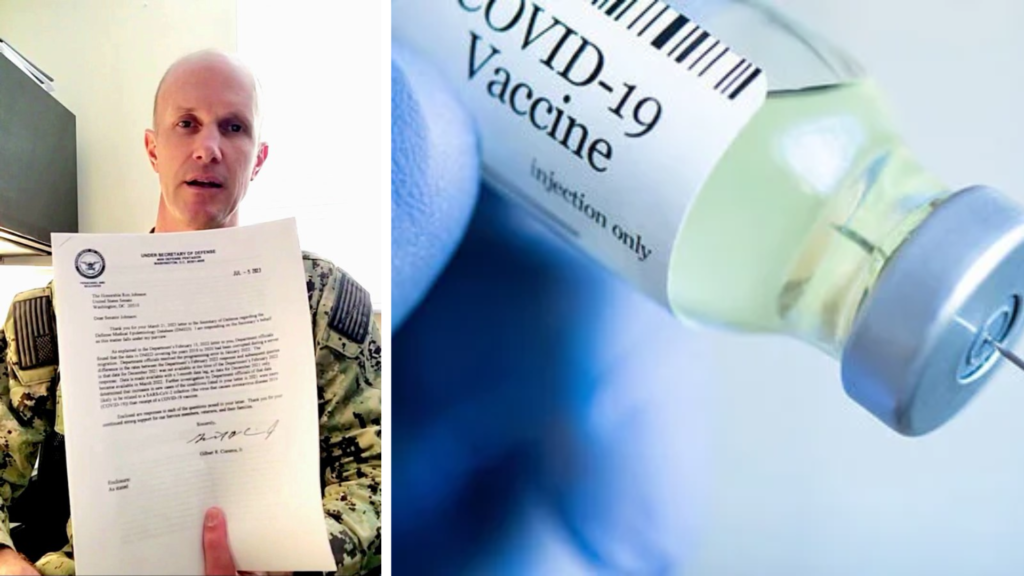
In a landmark settlement that underscores the ongoing debate over religious freedom and public health mandates, the U.S. Department of the Navy has reached an agreement with First Liberty Institute (FLI) and Hacker Stephens LLP. This agreement arises from a lawsuit filed in 2021 by FLI on behalf of Navy SEALs and Navy Special Operators who opposed the COVID-19 vaccine mandate on religious grounds. The case was later expanded to include all Navy service members with similar objections, according to FLI.
Under the terms of the settlement, Navy personnel who refused the COVID-19 vaccine due to religious beliefs will now have the opportunity to correct their service records. The agreement stipulates that the next three promotion boards must disregard any adverse information solely related to COVID-19 vaccine refusal if a religious accommodation was requested. Additionally, service members who left the Navy due to mistreatment related to the vaccine mandate will also have their records corrected.
FLI highlighted several key points of the settlement, emphasizing the Navy’s commitment to respect the religious beliefs of its service members. The Navy will post a statement affirming its respect for religious service members, provide additional training for commanders reviewing religious accommodation requests, revise policies changed during the mandate, and pay $1.5 million in attorneys’ fees.
Danielle Runyan, Chair of the Military Practice Group and Senior Counsel at FLI, expressed her satisfaction with the outcome. “This has been a long and difficult journey, but the Navy SEALs never gave up,” Runyan stated. “We are thrilled that those members of the Navy who were guided by their conscience and steadfast in their faith will not be penalized in their Navy careers.”
Heather Gebelin Hacker, lead counsel for the class alongside Andrew Stephens, echoed this sentiment. “This was a hard-fought but significant victory for all members of the military and the principle of religious liberty,” Hacker said.
The settlement also mandates that the Navy re-review the personnel records of all class members to ensure the removal of any records indicating administrative separation processing, formal counseling, or non-judicial punishment actions based solely on non-compliance with the COVID-19 mandate. This comprehensive review aims to rectify any lingering impacts of the mandate on service members’ records and careers.
Ted Macie, one of the 231 individuals who signed the Declaration of Military Accountability regarding the COVID vaccine mandate, shared his personal story on social media. “This case saved my Naval career,” Macie wrote. “I was about to be involuntarily separated over an illegal shot mandate, with a religious accommodation in process. Instead, by the grace of God, I’m retiring soon with 23 years of service.”
Macie’s case underscores the broader implications of the settlement, which he described as a “small victory” for the SEALs, their families, and FLI. He also emphasized the need for continued vigilance to prevent similar situations in the future. “There must be accountability,” Macie insisted. “People need to go to jail, at a minimum.” He added, “All the hardship just adds fuel to our fire. We’re going to save this place whether they like it or not.”
The settlement not only impacted Macie’s career but also prompted significant changes in his personal life. Macie initially planned to run for Congress, believing he would be forced out of the Navy. Ultimately, he remained on active duty while his wife, Mara Macie, pursued a Congressional seat in Florida’s District 5, driven by their shared experiences and desire for accountability.
Ted Macie also revealed that he became a whistleblower, tracking unusual medical data within the Defense Medical Epidemiology Database (DMED). His findings, which included significant increases in myocarditis and heart failure among pilots, led to an investigation against him rather than an inquiry into the data he reported. Despite facing retaliation, Macie remains determined to advocate for change.
This settlement marks a significant victory for religious liberty within the military, ensuring that service members are not penalized for adhering to their religious convictions. It also highlights the ongoing need for transparency and accountability in handling public health mandates.

